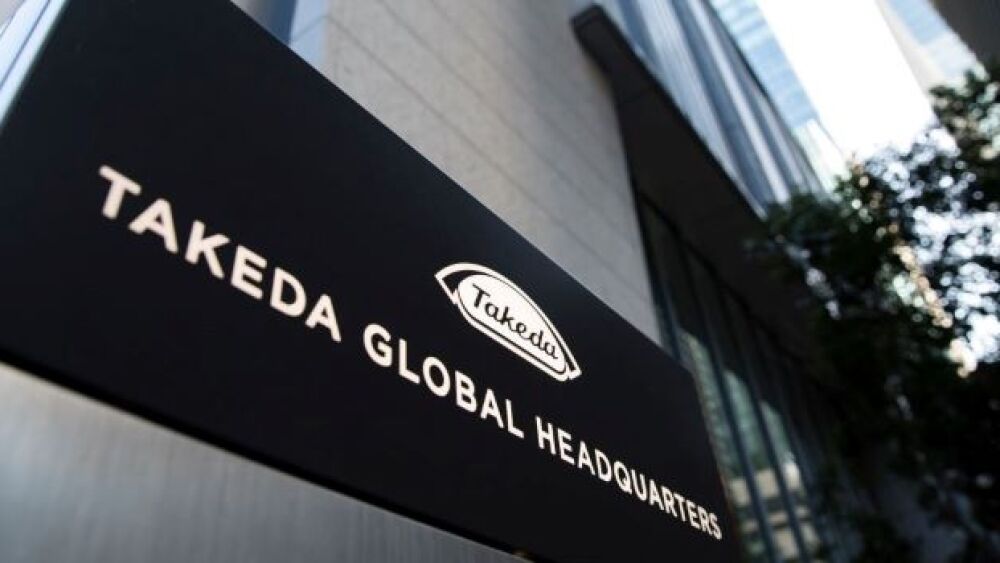The FDA approved Takeda’s Livtencity (maribavir) for adults and children 12 years or older with post-transplant cytomegalovirus (CMV) infection.
Tomohiro Ohsumi/Getty Images
The U.S. Food and Drug Administration (FDA) approved Takeda Pharmaceutical Company’s Livtencity (maribavir) for adults and children 12 years and older who weigh at least 35 kilograms with post-transplant cytomegalovirus (CMV) infection and are resistant to several other antiviral drugs, including ganciclovir, valganciclovir, cidofovir or foscarnet.
The FDA’s Advisory Committee unanimously recommended the drug’s approval on October 7, based on data from the Phase II and III clinical trials. The drug is an orally bioavailable anti-CMV compound, a new molecular entity. An antiviral, it targets and inhibits the UL97 protein kinase and its natural substrates. The FDA granted it Orphan Drug and Breakthrough Therapy Designation. It also received Orphan Drug Designation by the European Commission.
CMV is a beta herpesvirus. Data suggests that 40% to 100% of adult populations have evidence of previous infection. It typically is latent and is asymptomatic in the body but reactivates if a person becomes immunosuppressed. As a result, in people with compromised immune systems, such as people with various kinds of transplants and serious diseases, the infection can occur. Out of about 200,000 adult transplants each year around the world, CMV is one of the most common viral infections in transplant recipients. The rate of occurrence is 15% to 56% in solid organ transplant recipients and 30% to 70% in hematopoietic stem cell transplant recipients.
In these patients, CMV infection can be serious, often fatal, causing loss of the transplanted organ.
“Today’s announcement redefines the management of post-transplant CMV with the approval of the first and only treatment for transplant patients with CMV that is refractory with or without resistance, a significantly underserved and vulnerable patient community,” said Ramona Sequeira, president, U.S. Business Unit and Global Portfolio Commercialization, Takeda. “People undergoing transplants have a lengthy and complex healthcare journey; with the approval of this treatment, we’re proud to offer these individuals a new oral antiviral to fight CMV infection and disease. We are grateful for the contributions of the patients and clinicians who participated in our clinical trials, as well as the dedication of our scientists and researchers.”
Takeda is also evaluating the drug as first-line treatment of CMV in hematopoietic stem cell transplant (HSCT) recipients. It is currently in a Phase III trial.
The drug was studied in the TAK-620-303 (SOLSTICE) trial. It involved 352 HSCT and solid organ transplant (SOT) adult patients with CMV infection refractory, with or without or resistance, to one or a combination of the antiviral drugs mentioned earlier. They were chosen in random 2:1 to receive maribavir twice a day or investigator-assigned treatment (IAT), one of the antivirals, for up to eight weeks. After they wrapped the treatment period, the patients were then followed for 12 weeks. The primary efficacy endpoint was confirmed CMV DNA level as tested by COBAS AmpliPrep/COBAS TaqMan CMV test at the end of week 8.
The most common side effects in all grades were problems with taste, nausea, diarrhea, vomiting, and fatigue. A higher percentage of patients in the IAT group discontinued the trial due to adverse events than the Livtencity group, 32% and 13%, respectively.
“The FDA approval of Livtencity marks a major step forward in the treatment of post-transplant CMV, bringing a new therapeutic option to those living with this potential life-threatening opportunistic infection,” said Roy F. Chemaly, M.D., Department of Infectious Diseases, Infection Control & Employee Health at the University of Texas MD Anderson Cancer Center in Houston, TX. “In clinical studies, we observed Livtencity was statistically superior to conventional antiviral therapies in achieving the primary endpoint at Week 8.”





